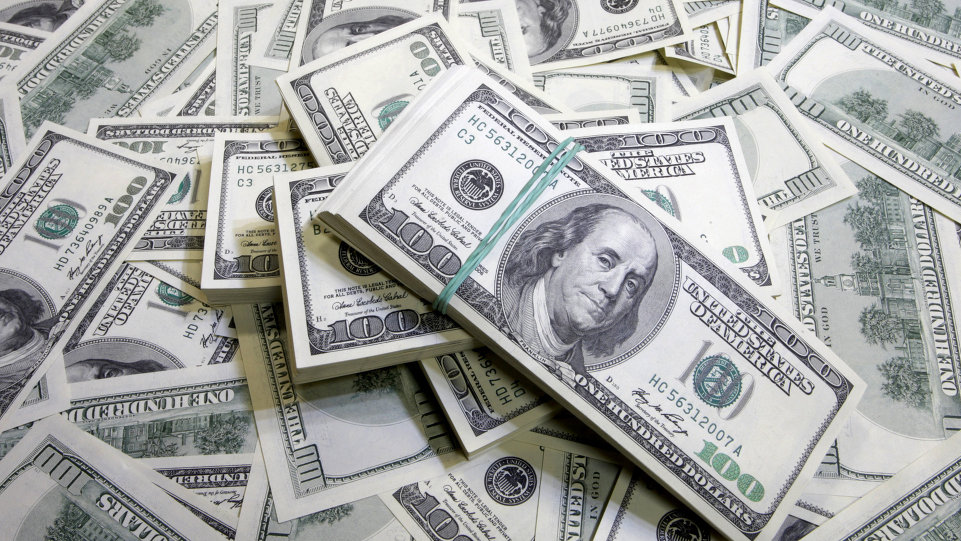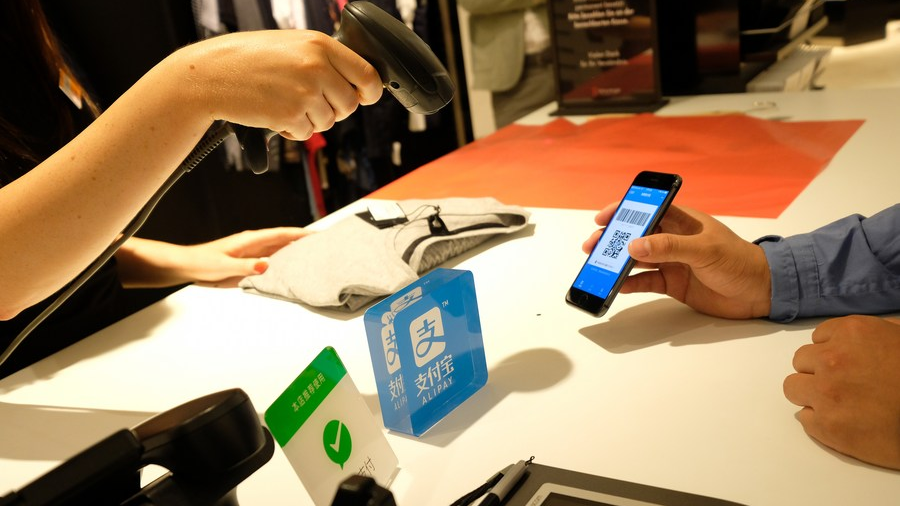
The "Greenback", a nickname used for the U.S. dollar in the financial press.
The "Greenback", a nickname used for the U.S. dollar in the financial press.
Editor's note: Ken Moak, who taught economic theory, public policy and globalization at the university level for 33 years, co-authored a book titled "China's Economic Rise and Its Global Impact" in 2015. The article reflects the author's opinion, and not necessarily the views of CGTN.
During the 1944 Bretton Woods Conference, the United Kingdom economist John Maynard Keynes proposed the establishment of an international clearing house (ICU) using the supranational currency, bancor (which he and fellow economists E. F. Schumacher conceptualized between 1940 and 1942), as a unit of account for international trade and financial settlements. But the British proposal was not accepted, largely due to U.S. opposition.
It was perhaps because the U.S. was the most powerful country and was holding the largest amount of gold. It was also because the U.S. was the biggest creditor and the largest trade surpluses, that the U.S.-proposed International Monetary Fund (IMF) and pegged or fixed exchange systems were established.
The IMF was to be the clearing house for international transactions and the U.S. was (and still is) its largest shareholder, owning over 17 percent of the financial institution's shares.
Conversion of the currencies was based on the U.S. price of gold, thus the U.S. dollar implicitly became the world reserve currency, earning the reputation, "The greenback is as good as gold."
That is, all countries accepted the greenback as a medium of exchange and settlement of debts. Sparing the world the cumbersome processes of shipping and storing the commodity improved international trade and investment efficiencies, thereby contributing to economic growth.
The world reserve currency status became the source of U.S. global power because it could borrow as much as it wanted in the international capital market without worrying about payment defaults.
For example, the U.S. government treasuries were (and still are) the world's most sought-after financial assets because the face value and interests were to be repaid in U.S. dollars, deemed the "safest" currency on Earth.
If China decided to sell over one trillion U.S. dollar treasuries, for example, all that America had to do was to print that amounts of greenbacks to repay the Asian country. While there would be side effects such as depreciation of the U.S. dollar and rise in interest rates (both of which could wreak havoc on the global financial system and the economy), including those of the U.S., the U.S. would be "debt free." China, on the other hand, would be receiving depreciated greenbacks, effectively reducing America's debt burden.
That was exactly what happened in the 1980s when the U.S. forced Japan to appreciate the Yen against the dollar by nearly 33 percent of the FDI under the Plaza Accord. The amount of money America owed Japan was declined by a corresponding amount. Japan became poorer and paid part of America's debt to it.
The U.S. abusing its reserve currency status occurred in all administrations, using the privilege to sanction countries. U.S. President Donald Trump, for example, successfully threatened to deny EU firms from using the U.S.-dollar dominated payment platforms such as SWIFT if they continue doing business with Iran, a country his administration sanctioned. The threat worsened the Islamic Republic's economic plights and eroded EU business opportunities.
The latest were sanctions against some Chinese central government and Hong Kong Special Administrative Region (HKSAR)'s officials who were complicit in the enactment of the national security law for the HKSAR. The decision was clearly an abuse of the reserve currency privilege.
The reserve currency status, moreover, allowed the U.S. to control the global financial system and institutions (i.e. IMF and the World Bank) and international loans were largely made in U.S. dollars. More damaging to borrowing nations were the Washington Consensus (a term coined by British economist John Williamson in 1989) loan conditions of fiscal austerity in periods of economic slowdown, unfettered international trade, privatization of state-owned assets.
Columbia University and Nobel Laureate in Economics Joseph Stiglitz observed that the harsh loan conditionality kept less developed economies in a state of perpetual underdevelopment or worsened their economic plight.

A customer using Alibaba's Alipay at Breuninger store in Dusseldorf, Germany, June 29, 2018. /Xinhua
A customer using Alibaba's Alipay at Breuninger store in Dusseldorf, Germany, June 29, 2018. /Xinhua
Indeed, developing economies from Asia to Latin America and Africa were not only made worse off, but also increased debt burdens because of IMF and the World Bank loans.
The reason was simple: Borrowing nations were barred from deficit financing or reduced spending on economic recovery, sinking the fragile economies further because of the multiplier effect. Slower economic growth reduced revenues, forcing the affected countries to take out another loan to pay off an existing one, effectively pushing them into "debt traps."
It might be the U.S. abusing its privilege and the (economic and financial) power that went with it that former People's Bank of China governor Zhou Xiaochuan to propose International Monetary Fund (IMF) Special Drawing Rights (SDRs) as the world's new reserve currency. Zhou's proposal makes sense because that would prevent the U.S. from sanctioning countries that dared to walk independent development and foreign policy paths.
However, the U.S. holds in the IMF and the World Bank policies by virtue of holding more 17 percent of the two institutions’ shares. A super majority of 85 percent is needed to overturn or revise existing policies, thus making the SDR an unlikely candidate as the new reserve currency.
China and other major economies therefore should work together to institute a new international currency, independent of the U.S.-controlled IMF and the World Bank. The value of the new currency could be based on the weighted average value of member countries.
Each country would be allotted an amount or line of credit (based on the size of the economy) to settle trade and other financial deficits. If a country's financial requirements exceed its line of credit, the relevant nation could borrow more, but with manageable conditions to prevent "debt traps."
Establishing an international currency to replace the greenback will not be easy, but it should and must be done. Only then would international economic and financial systems be stable or free from U.S. meddling and bullying.
(If you want to contribute and have specific expertise, please contact us at opinions@cgtn.com.)